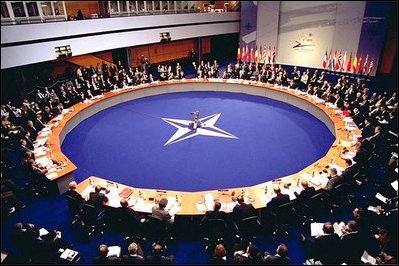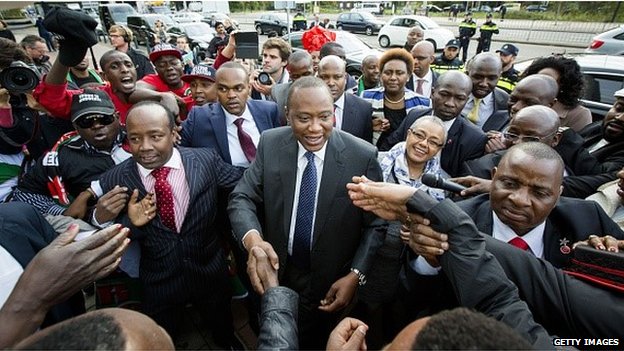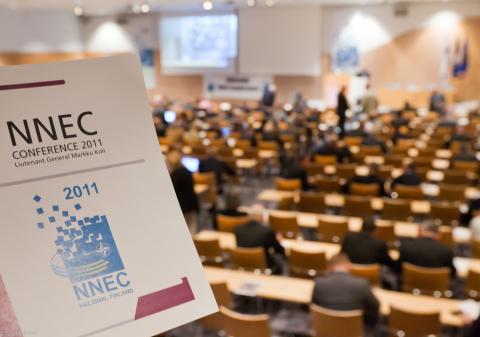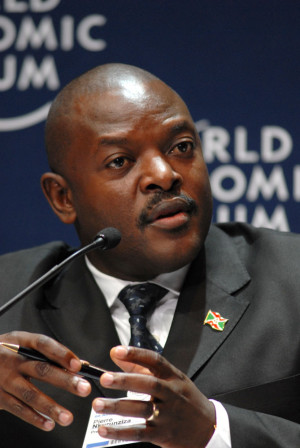There is no shortage of articles written on the relevance of NATO in the years following the end of the Cold War. Predictions about what would happen to the alliance after the demise of the Soviet Union fell into essentially two camps: those who predicted that the alliance would dissolve given the lack of a unifying threat and those who believed that the values that brought the organization together would endure beyond the initial threat that led to its inception. As NATO failed to dissolve, the latter camp’s predictions held more weight, NATO endured and expanded in the following decades.
Despite those predictions coming to fruition, NATO’s endurance can still be considered an anomaly. Those who seek to make sense of it point to the very values that brought it together. Here the ideas surrounding political and security communities becomes particularly relevant. During the Cold War, scholar Karl Deutsch and his colleagues discussed the formation and organization of political communities as they pertain to security. As political communities themselves can engage in warfare, Deutsch focuses instead on security communities, which he defines as a community “…in which there is a real assurance that the members of that community will not fight each other physically, but will settle their disputes in some other way.”
For the purposes of NATO, describing it as a pluralistic security community based on the concept of collective defence makes the most sense. NATO member states retain their individual sovereignty, and work together in order to ensure that any conflict between them is resolved through peaceful means. Alexander Wendt elaborates on this, arguing that the members of a security community are unified non-rivals that possess coercive agency. The meaning of military power shifts within a pluralistic security community as disputes are settled through other means. Disputes that arise outside the community, however, are often seen as a threat to the whole.
Thus, if NATO is considered a unified security community based on the concept of collective security, it follows that members of that community will come to the aid of other member states even if their own territory or assets remain unthreatened. This is different from a military alliance formed to balance the power of another state, as these alliances are usually time-specific and may dissolve once it is no longer beneficial or needed. States may ‘fall back’ into the principle of self-help in the absence of a threat; this is what many predicted would happen in the post-Cold War world.
However, as stated, others argue that in collective security agreements, states do not fall back into patterns of self-help as the agreement extends beyond specific timeframes and constitutes political relationships. This provides enough ground for NATO to be considered both a collective security network and a security community.
If we look at the way in which NATO operates today, we certainly see a lot of these concepts in action. Canada’s relationship with NATO is telling: when we consider Canada’s role and ambitions within NATO with the concepts of security communities and collective security agreements being central to its formation, specific trends become apparent with regards to Canadian foreign policy. Many, have observed that the hierarchy of interests concerning Canadian defence policy is related to the strategic circumstances of the period in which that decision is being made. Whether or not collective measures for peace, security, and defence are pursued through the UN or NATO will be influenced by the nature of the threat in question.
Without question, however, is the reality that Canada cannot ‘fall back’ into a self-help system which is likely to happen once alliances are terminated. Being aligned with the member states significantly increases Canada’s political manoeuvrability within the international system and contributes to its defensive capabilities. This leads to a vested interest in the continuation of NATO. Canada arguably relies on such agreements and alliances for its security in the international system. The same is true for many states in Europe, especially those that typically spend less on defence than others in the alliance. However, major players like the U.S. only benefit from NATO as long as it is worried about Europe.
Which leads us to present day issues: with all of these dynamics at play, how do we reconcile an aggressive Russia and a lack of consensus in NATO? Some, including noted international relations scholar Stephen Walt, have observed that Putin’s actions in the past two years have given NATO a new boost in relevance. Walt’s arguments hold some truth, especially with regards to the effect of NATO’s expansion on Putin’s rise in popularity. This is not a highly disputed issue; the idea that NATO’s expansion led to Russian alienation is a popular, if not too late, observation. Whether or not Russia really feels threatened is beyond the topic of discussion – the effect of Russian expansion towards NATO, however, is.
The Ukrainian factor plays a pivotal role here. As many have argued, despite Russia’s shortcomings in terms of its real economic and military power compared to its Cold War peak, it clearly still represents a threat. The issue is that by taking action regarding the conflict in Ukraine, Russia could be further isolated, leaving potentially bigger consequences than the ones we face now. The unfortunate reality is that in many ways, the Russian threat is superseded by others with arguably higher stakes and a clearer enemy.
As the United States seems to agree with this sentiment, the future is uncertain. Since the security community formed by NATO continues to be threatened on multiple fronts, action should be inevitable. What that action could be, and on what front it would take place, depends on whether or not NATO member states can reach consensus. This begs the question of what happens to a security community if some members do not see a threat to be as grave as others do. If the stakes are higher elsewhere, like in the Middle East where nation building is a priority rather than in Eastern Europe, then the hierarchy of interests will be difficult to reconcile with Eastern European states and other members as strategic priorities shift.





